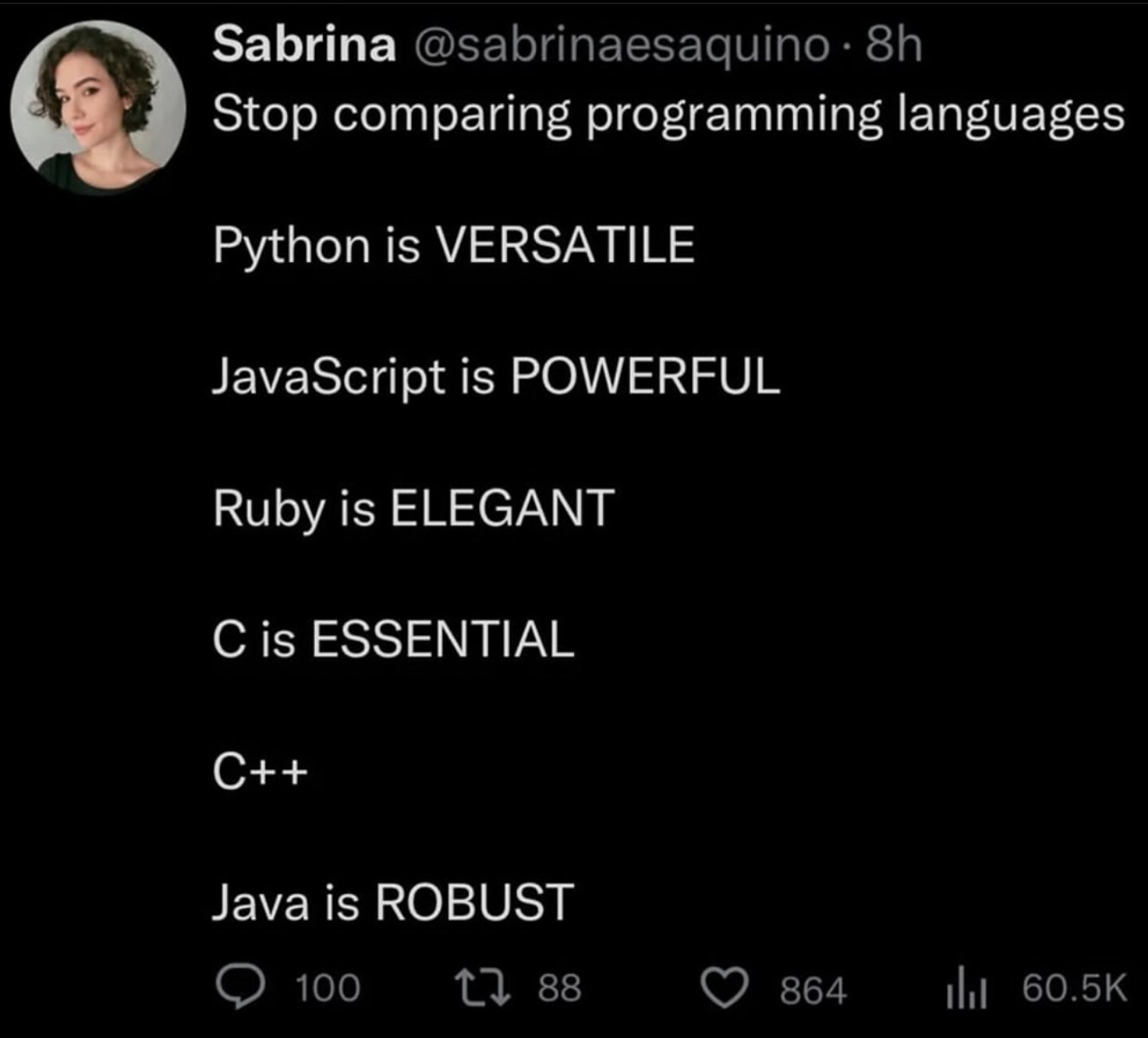this post was submitted on 14 Jun 2024
666 points (92.9% liked)
Programmer Humor
19450 readers
736 users here now
Welcome to Programmer Humor!
This is a place where you can post jokes, memes, humor, etc. related to programming!
For sharing awful code theres also Programming Horror.
Rules
- Keep content in english
- No advertisements
- Posts must be related to programming or programmer topics
founded 1 year ago
MODERATORS
you are viewing a single comment's thread
view the rest of the comments
view the rest of the comments

This is true of every language. If you can't think of things you don't like about the language you're working in (and/or its tooling) you just don't know the language very well or are in denial.
Ehhh, I mean this more strongly. I've never met people more in denial about language design problems than C++ adherents. (Though admittedly I haven't spent much time talking to Lisp fans about language design.)
It's made worse by the fact C++11 made a lot of solutions for the deep problems in the language. As the C++ tradition dictates, the problems themselves are carefully preserved for backward compatibility, the solutions are like a whole different language.
And Lisp is small - the first Google result provides a Lisp interpreter in 117 lines of Python code.
C++11 also introduced new problems, such as the strange interaction between brace-initialization and initializer-lists (though that was partially fixed several years later), and the fairly arcane rules around move semantics with minimal compiler support (for example, it would be great if the standard required compilers to emit an error if a moved-from object were accessed).
I know Lisp is minimal, I'm just saying that I expect there are Lisp fans who won't acknowledge (or would excuse) any shortcomings in the language, just as there are C++ fans who do the same for C++.